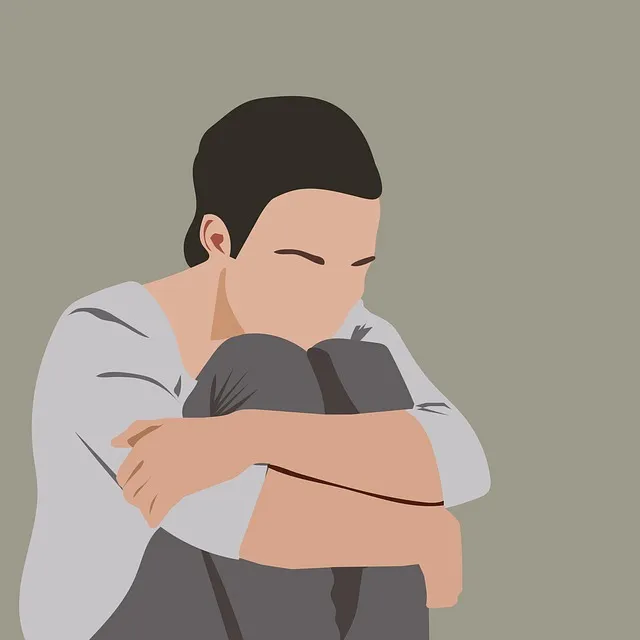Kaiser Permanente mental health locations in Highlands Ranch leverage Crisis Intervention Teams (CITs) to offer specialized support for severe emotional distress and suicidal ideation. Trained professionals from diverse backgrounds collaborate using evidence-based methods, focusing on communication, risk assessment, crisis de-escalation, burnout prevention, and emotional well-being. This comprehensive approach equips mental health staff to handle acute situations effectively while maintaining their resilience. Kaiser Permanente Highlands Ranch leads in mental health service provision by offering advanced CIT training and fostering a culture of care and resilience, integrating cultural sensitivity and community engagement to ensure tailored support for diverse populations.
“Crisis intervention teams (CITs) play a pivotal role in providing immediate, specialized support during mental health crises. This article explores the significance of CIT training programs in enhancing community well-being, drawing from the successful initiatives at Kaiser Permanente Highlands Ranch. We delve into the essential components that make these programs effective and share real-world impact stories from various Kaiser Permanente mental health locations, highlighting their commitment to fostering resilient communities.”
- Understanding Crisis Intervention Teams: A Vital Resource in Mental Health Care
- Kaiser Permanente Highlands Ranch: A Focus on Community Support and Training
- Essential Components of Effective Crisis Intervention Team Training Programs
- Real-World Impact: Success Stories from Mental Health Locations Across the Network
Understanding Crisis Intervention Teams: A Vital Resource in Mental Health Care

Crisis Intervention Teams (CITs) are an essential resource in mental health care, offering immediate and specialized support to individuals experiencing severe emotional distress or suicidal ideation. These teams, often composed of trained professionals from various disciplines, including psychologists, social workers, and nurses, work collaboratively to de-escalate crises and provide evidence-based interventions. At Kaiser Permanente mental health locations in Highlands Ranch, CIT training programs play a pivotal role in equipping healthcare professionals with the skills needed to navigate complex situations effectively.
These training initiatives focus on enhancing communication, improving risk assessment abilities, and teaching crisis de-escalation techniques. By addressing burnout prevention and incorporating emotional well-being promotion techniques, CIT programs ensure that mental health professionals are not only equipped to handle acute crises but also able to sustain their own emotional resilience. Effective risk management planning is integral to these training, enabling healthcare providers to mitigate potential risks and deliver high-quality care in challenging circumstances.
Kaiser Permanente Highlands Ranch: A Focus on Community Support and Training

Kaiser Permanente Highlands Ranch stands as a beacon of mental health support within its community. This location prioritizes comprehensive crisis intervention training programs, equipping healthcare professionals with the tools to navigate complex situations effectively. By fostering a culture of care and resilience, Kaiser Permanente Highlands Ranch goes beyond traditional mental health services. They actively engage with local communities, ensuring that resources are accessible to those in need.
The facility’s commitment extends to integrating essential aspects like Mental Health Policy Analysis and Advocacy into their training curricula. This approach promotes cultural sensitivity in mental healthcare practice, addressing the unique needs of diverse populations. Through such initiatives, Kaiser Permanente Highlands Ranch not only enhances stress management strategies but also fosters an inclusive environment where every individual receives tailored support.
Essential Components of Effective Crisis Intervention Team Training Programs

Effective crisis intervention team (CIT) training programs are pivotal in equipping healthcare professionals with the skills to navigate and de-escalate critical situations, especially at Kaiser Permanente mental health locations like Highlands Ranch. A robust CIT training curriculum should encompass several key components for optimal impact. Firstly, it must provide comprehensive education on recognizing and understanding various crisis states, including psychotic episodes, suicidal ideation, and acute anxiety attacks. This involves teaching practitioners to identify subtle cues and risk factors, enabling them to intervene early.
Moreover, training should delve into evidence-based de-escalation techniques tailored for mental health settings. Role-playing scenarios that simulate real-life crisis situations are invaluable tools for enhancing practical skills. Additionally, integrating burnout prevention strategies for healthcare providers is essential, considering the demanding nature of mental health work. The program should also cover risk management planning, crucial for mitigating potential legal and ethical risks associated with handling high-stakes situations, while fostering a culture of open communication and support among team members.
Real-World Impact: Success Stories from Mental Health Locations Across the Network

The real-world impact of crisis intervention team (CIT) training programs is evident across Kaiser Permanente’s mental health locations, including its Highlands Ranch facilities. These programs have been instrumental in equipping staff with the skills to navigate complex situations and deliver effective support to individuals facing severe emotional distress. Success stories abound, highlighting the positive transformations both within the organization and within the lives of those served.
For instance, at Kaiser Permanente’s Highlands Ranch mental health location, CIT team members have successfully de-escalated numerous high-risk incidents, preventing potential crises from escalating. Through rigorous training in risk assessment for mental health professionals, self-awareness exercises, and positive thinking techniques, teams can now respond swiftly and effectively to a range of scenarios. This not only ensures the safety of patients and staff but also fosters an environment where individuals feel heard, understood, and supported during their journey towards recovery.
Crisis intervention team (CIT) training programs are a game-changer in mental health care, as evidenced by successful implementations at various Kaiser Permanente mental health locations, including Highlands Ranch. By equipping healthcare professionals with the necessary skills, these comprehensive training initiatives empower teams to effectively navigate and deescalate crises. The essential components highlighted in this article—from community support integration to evidence-based practices—are key to fostering a supportive environment and enhancing patient outcomes. As the demand for mental health services continues to grow, investing in CIT training programs is a crucial step towards building resilient communities and ensuring access to timely, effective interventions.






